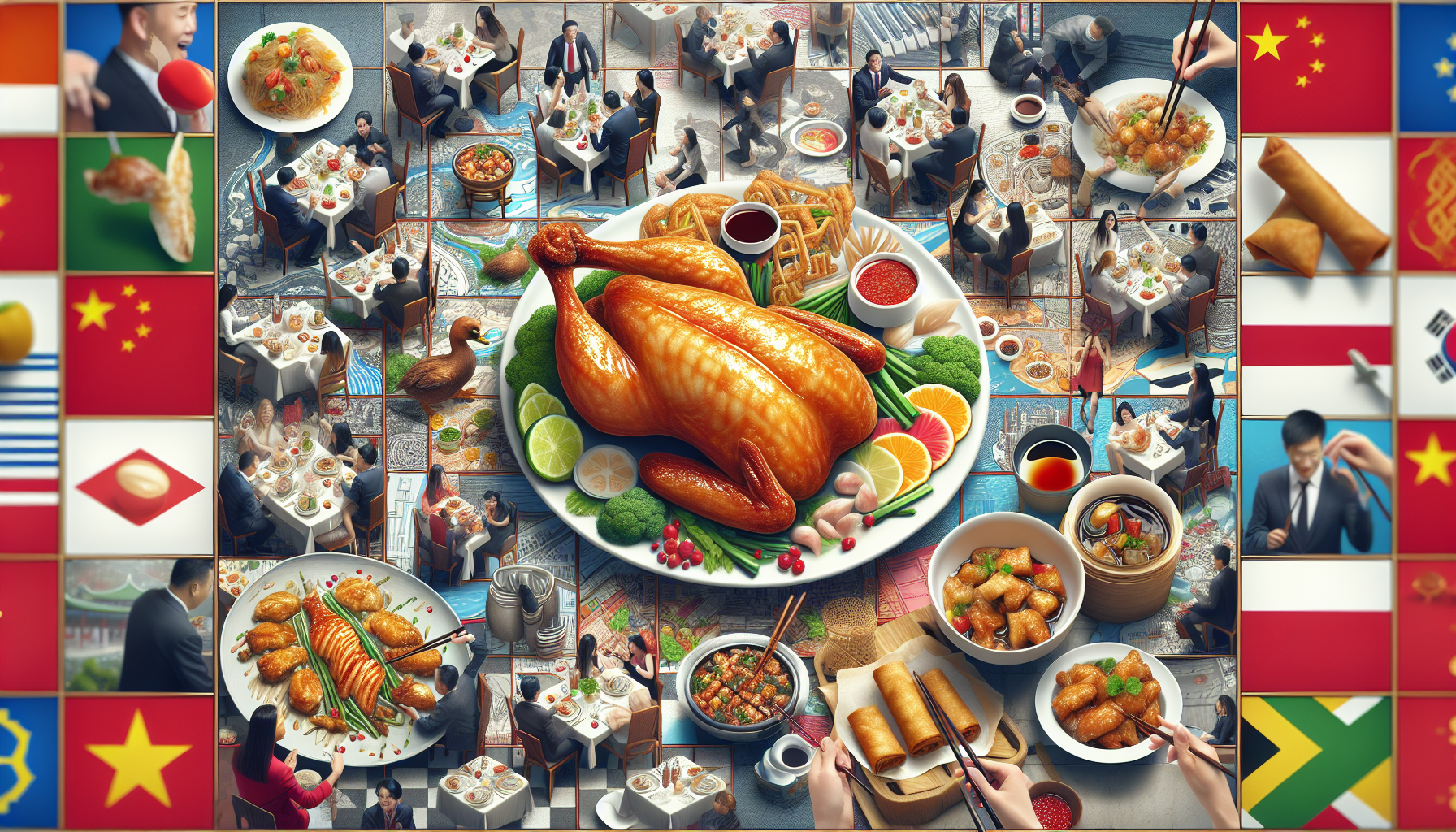Advertisements
Chinese cuisine is one of the most popular and appreciated worldwide, conquering palates with its diversity of flavors and exotic ingredients. With an ancient history and a rich gastronomic tradition, Chinese cuisine has significantly influenced global cuisine.
Chinese dishes are known for their balanced combination of flavors, textures and colors, and are prepared using unique culinary techniques that bring out the flavor of the ingredients. With dishes such as fried rice, Peking duck, chop suey noodles and the famous dim sum, Chinese cuisine has conquered not only Asian palates, but also the palates of people around the world.
The influence of Chinese cuisine can be seen in many countries, where restaurants specializing in Chinese food are very popular. In addition, ingredients such as soy sauce, ginger and sesame oil are widely used in many international cuisines, demonstrating the relevance and impact of Chinese cuisine.
Advertisements
With globalization and the search for new gastronomic experiences, Chinese cuisine has increasingly gained prominence, gaining space on the menus of renowned restaurants and in the homes of people around the world. The mix of tradition and innovation makes Chinese cuisine one of the most appreciated and influential on the international scene.
Chinese flavor and tradition conquering the world: the influence of Chinese cuisine on global palates
Chinese cuisine has a long history and is known for its diversity of flavors, ingredients, and preparation techniques. With dishes ranging from spicy and peppery to sweet and mild, Chinese food has won over palates around the world.
An ancient heritage
Chinese cuisine is one of the oldest and richest in the world, with a history that dates back thousands of years. The influence of various dynasties and regions of China can be seen in the different styles of cuisine that exist in the country. Dishes such as the famous Peking duck, Canton dim sum and Sichuan hot pot are just a few examples of the diversity of Chinese cuisine.
Global expansion
With globalization and the migration of Chinese people to other countries, Chinese cuisine has spread throughout the world and adapted to local preferences. Chinese restaurants can be found in almost every major city in the world, offering traditional dishes as well as Westernized versions of Chinese food.
Advertisements
- Dishes such as chicken cheeks, yakisoba and spring rolls have become popular in many Western countries, adapted to suit local tastes.
- The influence of Chinese cuisine can be seen not only in restaurants but also in supermarkets, where ingredients such as soy sauce, ginger and shiitake mushrooms have become staples in the pantries of many people around the world.
- The popularity of Chinese food is also reflected in food festivals, television cooking shows and even on social media, where photos of Chinese dishes are shared by food enthusiasts.
Chinese cuisine continues to conquer global palates, combining tradition, flavor and innovation to create a unique and delicious dining experience.

Chinese cuisine is a true reflection of the vast cultural and geographical diversity of China, a country with over 5,000 years of history. Each region of China has its own distinct specialties and flavors, reflecting not only the local ingredients but also the philosophy and customs of the communities. From the famous Peking Duck of Beijing, to the aromatic recipes of Sichuan with their characteristic spicy and spiciness, to the delicate dishes of the Canton region, Chinese cuisine offers a unique and multifaceted experience.
What makes Chinese cuisine even more fascinating is its ability to balance contrasting flavors such as sweet, salty, sour and spicy, as well as exploring a multitude of fresh ingredients such as vegetables, meats, seafood and spices. Preparation techniques such as stir-frying, steaming and frying are masterfully employed, guaranteeing dishes with complex and sophisticated textures and flavors.
Furthermore, Chinese cuisine has adapted over time, incorporating new ingredients and global influences, while maintaining its traditional roots. Chinese restaurants around the world continue to innovate and reinterpret classic dishes, creating new variations that cater to modern tastes while maintaining the essence of the original recipes. The use of preservation techniques, such as fermentation and smoking, is also one of the aspects that gives Chinese cuisine a touch of authenticity and longevity, allowing many dishes to be enjoyed for generations.
Chinese cuisine is not just a gastronomic experience, but a cultural journey that offers an immersion into the traditions and history of the Chinese people. Its impact on global gastronomy is undeniable, continuing to inspire chefs and culinary enthusiasts to explore its endless possibilities.
Conclusion
In conclusion, Chinese cuisine, with its long history and diverse flavors, has won over palates around the world. With dishes ranging from spicy and peppery to sweet and mild, Chinese food reflects the country’s cultural and culinary richness. The influence of Chinese cuisine can be seen in restaurants, supermarkets and even on social media, where Chinese dishes are shared by food enthusiasts. With globalization and the migration of Chinese people to other countries, Chinese cuisine has adapted to local preferences and has become popular in many parts of the world. Dishes such as chicken, yakisoba and spring rolls have become favorites in many Western countries, demonstrating the versatility and adaptability of Chinese cuisine. Chinese food continues to delight global palates, combining tradition, flavor and innovation to create a unique and delicious gastronomic experience. Experiencing Chinese cuisine is like immersing yourself in a sensory journey that celebrates the history, flavors and ancient tradition of this country so rich in culinary culture.
The diversity and richness of Chinese cuisine continues to delight and influence global palates, providing a unique and memorable dining experience. With its balanced combination of flavors, fresh ingredients and sophisticated culinary techniques, Chinese food transcends borders and cultures, captivating more and more connoisseurs around the world. Whether it’s traditional dishes from specific regions of China or the culinary innovations of renowned Chinese restaurants, Chinese cuisine is a true celebration of tradition, flavor and creativity, demonstrating its enduring influence and global impact on contemporary gastronomy.




